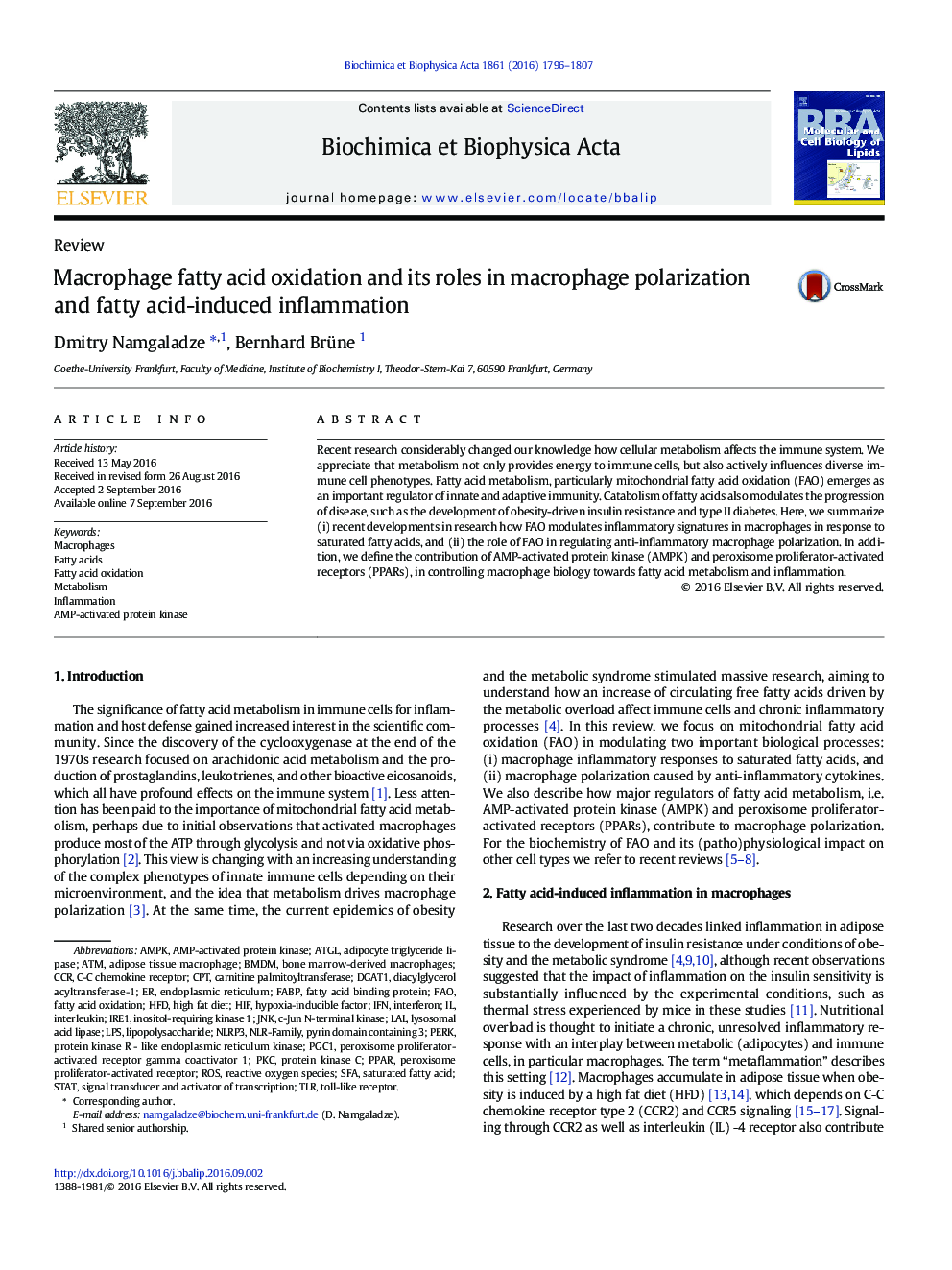| کد مقاله | کد نشریه | سال انتشار | مقاله انگلیسی | نسخه تمام متن |
|---|---|---|---|---|
| 6481655 | 1537698 | 2016 | 12 صفحه PDF | دانلود رایگان |
• Saturated fatty acids provoke inflammatory responses in macrophages.
• Fatty acid oxidation lowers inflammation in macrophages.
• Inflammation attenuates macrophage oxidative metabolism.
• Fatty acid oxidation is characteristic of IL-4-polarized macrophages.
• AMPK and PPARs activate fatty acid oxidation and reduce inflammation.
Recent research considerably changed our knowledge how cellular metabolism affects the immune system. We appreciate that metabolism not only provides energy to immune cells, but also actively influences diverse immune cell phenotypes. Fatty acid metabolism, particularly mitochondrial fatty acid oxidation (FAO) emerges as an important regulator of innate and adaptive immunity. Catabolism of fatty acids also modulates the progression of disease, such as the development of obesity-driven insulin resistance and type II diabetes. Here, we summarize (i) recent developments in research how FAO modulates inflammatory signatures in macrophages in response to saturated fatty acids, and (ii) the role of FAO in regulating anti-inflammatory macrophage polarization. In addition, we define the contribution of AMP-activated protein kinase (AMPK) and peroxisome proliferator-activated receptors (PPARs), in controlling macrophage biology towards fatty acid metabolism and inflammation.
Journal: Biochimica et Biophysica Acta (BBA) - Molecular and Cell Biology of Lipids - Volume 1861, Issue 11, November 2016, Pages 1796–1807
